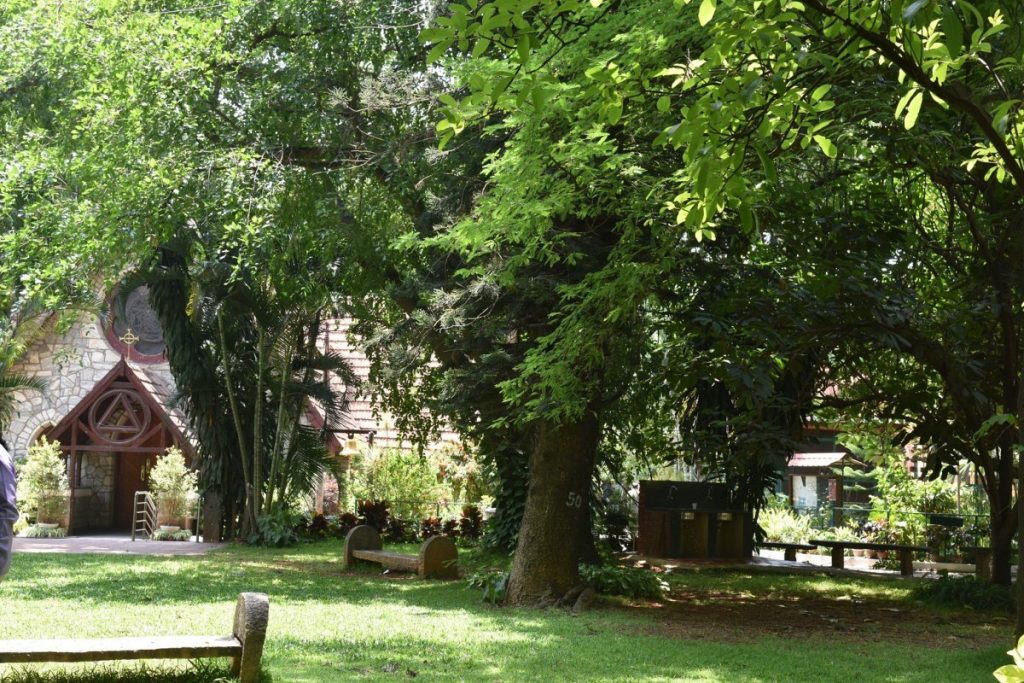Fighting climate change without developmental blind-spots
Deep thinking and concern for the future is what past generations have demonstrated in how they have constructed urban spaces
By Leo Saldhana, featured in The Hindu dated, Dec 27 2021
For three years, the congregation of All Saints’ Church has been struggling to change Namma Metro’s decision to build a concrete station box within its verdant sacred grove, a stunningly beautiful and serene garden in the middle of heavily concretised Bengaluru. Trees in this garden are gorgeously old, older than the 150-year-old charming and fragile church they embrace, a church with distinctive architecture designed by Robert Fellowes Chisholm, one of the pioneers of the so-called Indo-Saracenic style.

To the European Investment Bank (EIB), which lent €500 million to Bangalore Metro Rail Corporation Ltd. (BMRCL), Governments of India and Karnataka promised Namma Metro would be built to European Union’s Environmental and Social standards, which require protecting cultural and religious heritage and biodiversity rich spaces. The guidelines require projects financed by EIB not to destroy carbon sinks, especially in heavily built metropolises.
BMRCL argues that the price paid by the loss of this verdant sacred grove is the balance demanded by weighing environmental considerations with developmental priorities. It is also a popular sentiment, quite often employed to justify just about any mega project. Almost always, the judiciary agrees with this sentiment.
But when a similar situation arose when for the Phase I of the Metro massive strips of the Jayanagar boulevard was to be clear felled, or when 416 roads were to be widened to accommodate more space for traffic – risking permanent loss of urban greenery and pedestrian and street vending spaces – Karnataka High Court had directed BMRCL, and also Bruhat Bengaluru Mahanagara Palike (BBMP) and all infrastructure development agencies to plan with people’s views and aspirations considered through democratic processes.
Deep thinking and concern for the future is what past generations have demonstrated in how they have constructed urban spaces. Which is why we have such astonishingly biodiverse and beautiful gardens, as in All Saints Church, or Lalbagh, or Krishna Rao Park, Cubbon Park, Coles Park, the lovely boulevards and private gardens across the old Bengaluru. They are holders of fond memories, as they are of nesting landscapes with architectural flourishes, accommodating biodiversity, and reflective of compassionate decision making. All of which gets erased if a didactic approach becomes the dogma justified by claiming that is what sustainable development constitutes.
Such systemic reasoning will not weigh the value of a lake, garden, stream, boulevard, wetlands and forests in utilitarian terms, but will appreciate their centrality to the struggle we are now engaged in globally to mitigate carbon emissions and stop runaway climate change. It is such compassion that is essential to ensure we do everything necessary to sink excess carbon in the air, and make not only our cities, but the entire world more liveable.
The Make Bengaluru Climate Friendly – A Blueprint for Integrated, Participatory and Inclusive Urban Governance was evolved by the Environment Support Group, with deeply engaged participation from key representatives of multiple sectors: from the governments, academia, media, civil society, trade unions, vulnerable communities, etc. Through nine online discussions, a plan of action was built to make the metropolis sensitive to climate change’s harsh impacts and respond by integrating natural intelligence endemic to the place in formal decision-making.
The process focused on discovering resilient solutions to various complex challenges: urban flooding during monsoons and water scarcity in summer; massive investment in public transportation, yet traffic congestion and no space to walk and cycle almost everywhere; enhanced attention to personal and public health, yet health care is increasingly out of reach; massive increase of public investment in pollution control technologies, yet air and noise pollution is omnipresent and intensifying; the middle classes are getting wealthier, yet susceptible of lifestyle disorders as healthy food becomes beyond reach for most, while poor and working classes can barely afford nutritious food.
Of a metropolis as a cosmopolitan space respecting aspirations and concerns of diverse communities, while majoritarian politics threatens community cohesion, policies encouraging ‘smart’ living, when tackling climate change require nuanced ground up planning and governance based on deeply democratic decision-making.
The actions proposed were grounded in imagining what it would take to work with the frameworks proposed in Article 243 ZD/E of the Indian Constitution (introduced in 1992), which require representative planning and development decisions taking account of environmental limits to growth. In that sense they acknowledge how deeply futuristic our Constitution is, with Article 14 and 39 constituting the foundations of what was to become later as the basis on which the Rio Declaration is grounded, and of course the Common but Differentiated Responsibility paradigm. Inclusive, reasoned, intelligent, non-didactic decision making was found necessary and central to such imagining of transformations essential to secure interests of present and future generations, and sustainably.
As the city struggles out of a November filled with unprecedented rains, which has broken the city’s infrastructure and forced thousands of families into a struggle to recover from the flooding of their homes, and as massive commercial and IT complexes built to make Bengaluru a ‘global city’ turned into fishing zones, the question looming large is if we are willing to acknowledge calamitous climate change induced impacts is already bearing down on our metropolis, or if we prefer to have our heads buried in sand.
The broad message is that to sustain this metropolis into the future, we intelligently step away from past hubristic and undemocratic methods of governance, and engage in a politics which accommodates our diversities, and employs it’s enterprising nature as a vibrant engine that will groove us into extraordinary possibilities. Exploring which we can get into the journey of making Bengaluru an inclusive and climate friendly metropolis, and a model for the world.
(Leo F. Saldanha is part of Environment Support Group, an interdisciplinary policy analysis, advocacy and campaign initiative advancing environmental and socio-economic justice)

